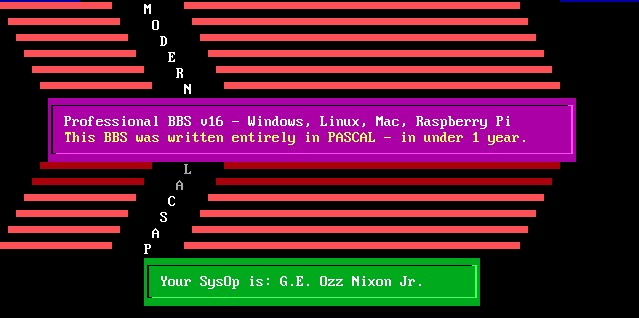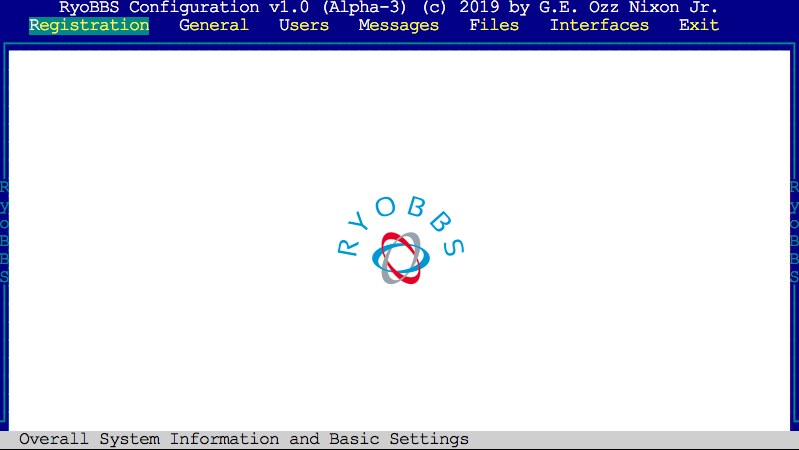Bulletin Board System
 A Bulletin Board System or BBS (sometimes called a CBBS or Board also), is a computer running software that allows users to connect to the system using a terminal program or a JavaScript in a web browser. Once logged in, the user can perform functions such as uploading and downloading software and data, reading news and bulletins, and exchanging messages with other users through public message areas and some Bulletin Board Systems offered chatting. In the early 1980s, message networks such as FidoNet sprung up to provide services such as NetMail, which is similar to email. Many BBSes also offer online games in which users can compete with each other.
A Bulletin Board System or BBS (sometimes called a CBBS or Board also), is a computer running software that allows users to connect to the system using a terminal program or a JavaScript in a web browser. Once logged in, the user can perform functions such as uploading and downloading software and data, reading news and bulletins, and exchanging messages with other users through public message areas and some Bulletin Board Systems offered chatting. In the early 1980s, message networks such as FidoNet sprung up to provide services such as NetMail, which is similar to email. Many BBSes also offer online games in which users can compete with each other.
Bulletin board systems were in many ways a precursor to the modern form of the World Wide Web, Social networks, Blogs, and other aspects of the Internet. InfoWorld estimated that there were 60,000 BBSes serving 17 million users in the United States alone in 1994. Many system operators (SysOps) of these BBSes pioneered many of the Internet Service Providers in the mid-90's. Eventually, the introduction of inexpensive dial-up internet services by larger companies and the original web browser offered global access that BBS operators could not provide, and led to a decline in the number of BBS operators starting in 1994. Over the next couple of years, many of the leading BBS software developers went bankrupt and tens of thousands of BBSes disappeared.
Today, BBSing survives largely as a nostalgic hobby in most parts of the world, but it is still an extremely popular form of communication for those wishing a more secure solution. Most of these surviving BBSes are accessible over Telnet and typically offer free messaging accounts, file transfer services, chat and a lot of the protocols commonly used on the Internet. Some offer access through packet switched networks or packet radio connections.
What does the setup look like?
What are the system requirements?
- A Computer (Laptop, Desktop, or even a Raspberry Pi or Intel NUC)
- A little diskspace (less than 10mb total).
- A little RAM (works with 100mb, more if obviously better for performance).
- An operating system (Windows XP or newer, Linux 2.4 Kernel or newer, Mac OSX 10.4 or newer)
Is RYOBBS just a Telnet BBS?
While RYOBBS does support Telnet access, there is an effort to incorporate current HTML browser capabilities.
Dead or Abandoned
Contrary to what many naysayers post online, BBSes are not dead, the technology is not outdated. There are companies who have invested thousands of dollars and work hours (pcmicro) to provide tools to keep the old software working on current hardware, networks and operating systems.
Speaking with a friend today, he mentioned the better term for BBSes is abandoned. Everyone jumped ship for the new shiny bobble called the Internet. While BBS authors have dwindled down to less than 100, there are many BBS packages that operate without these band-aid patches. With native support for Windows 32bit and 64bit and Winsock support for the Internet age. I give Kudos to James Coyle for making his BBS software a leader in many aspects of BBSing in the Internet age.

